Find Help
More Items From Ergsy search
-
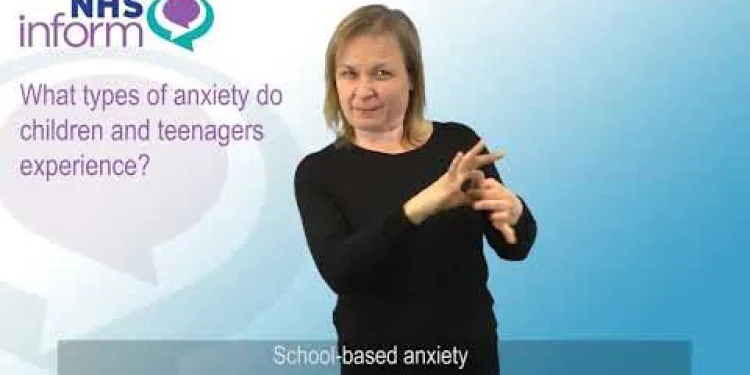
Anxiety in young people
Relevance: 100%
-
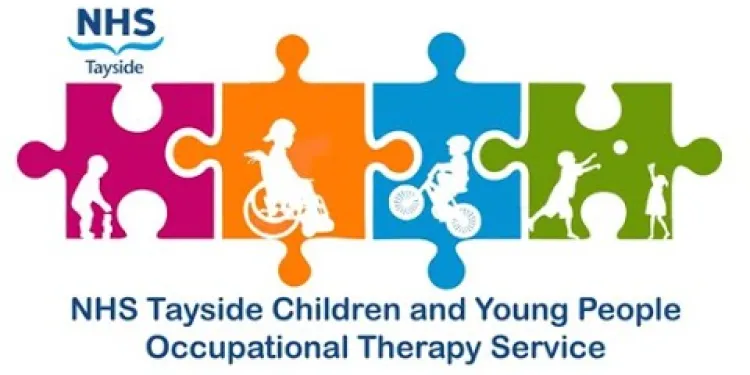
Developmental Coordination Disorder (DCD) for Children and Young People
Relevance: 42%
-

Can children and teens have health-related anxiety?
Relevance: 39%
-

How is health-related anxiety different from general anxiety?
Relevance: 39%
-
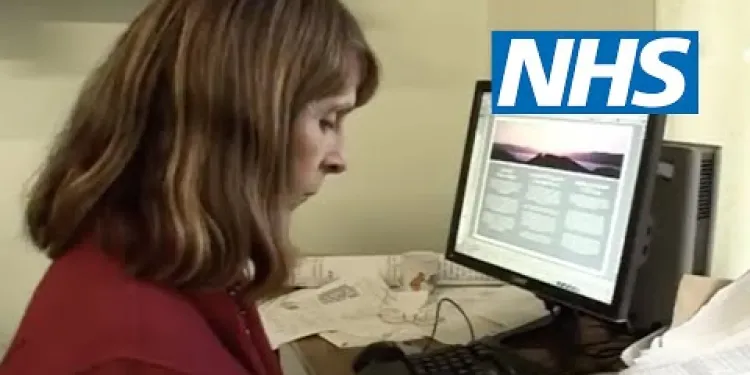
Anxiety | NHS
Relevance: 38%
-
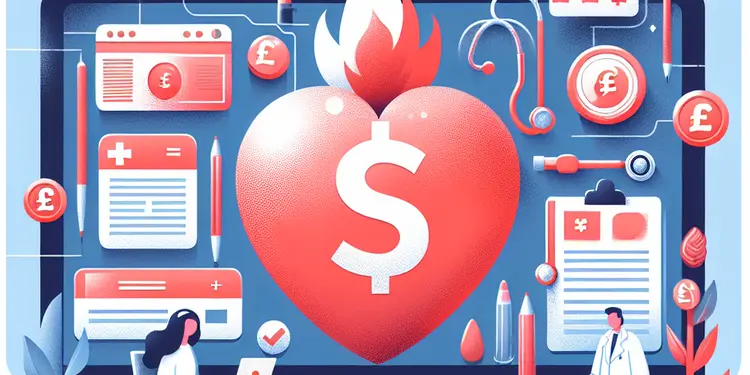
What is health-related anxiety?
Relevance: 37%
-

Why is binge drinking common among young adults?
Relevance: 37%
-
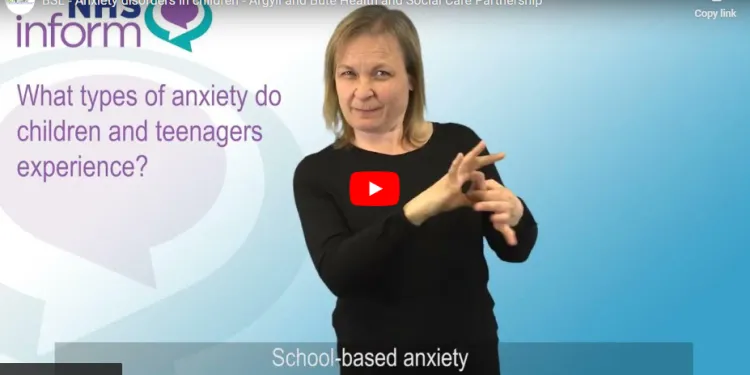
What type of anxiety do children and teenagers experience?
Relevance: 36%
-
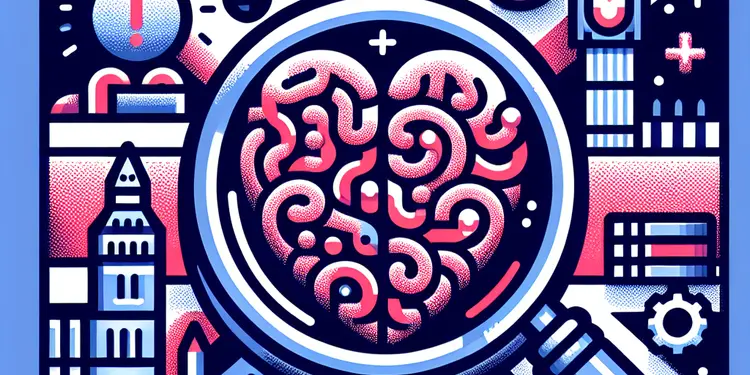
Is health-related anxiety a common condition?
Relevance: 36%
-

Coping with Stress and Anxiety
Relevance: 35%
-
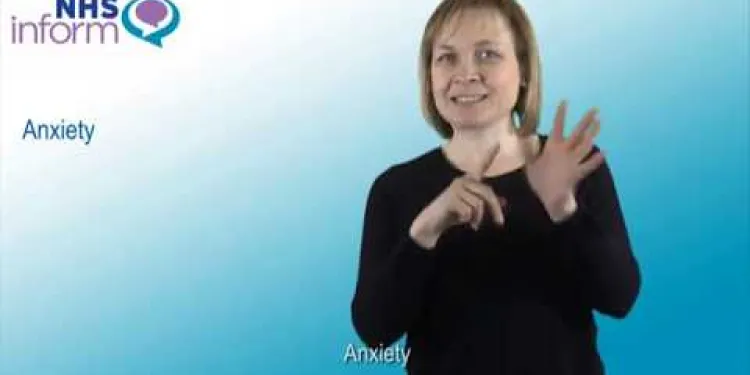
Generalised anxiety disorder (GAD)
Relevance: 35%
-
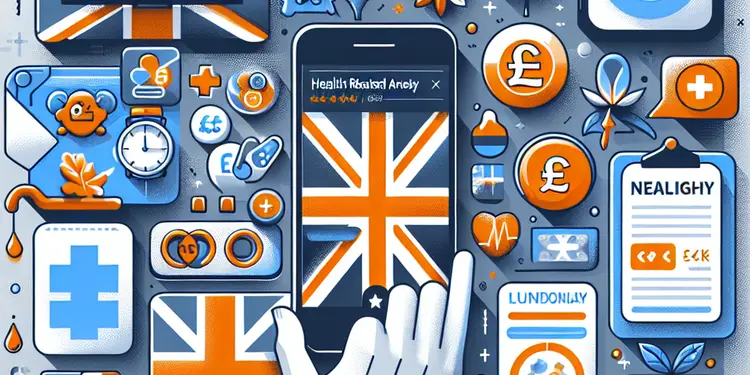
What is health related anxiety?
Relevance: 35%
-

What causes health-related anxiety?
Relevance: 34%
-
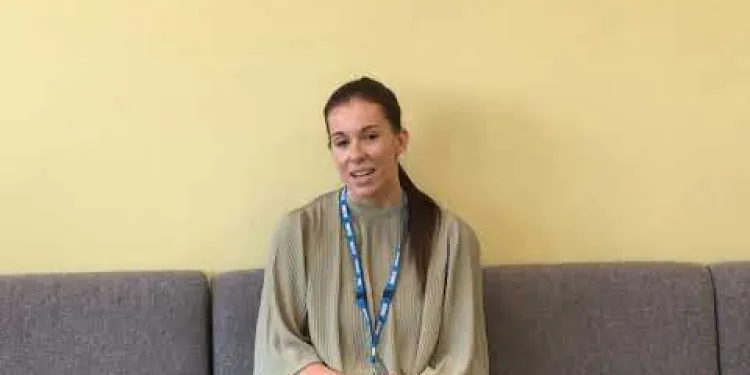
Practical strategies to support young children who stammer
Relevance: 34%
-
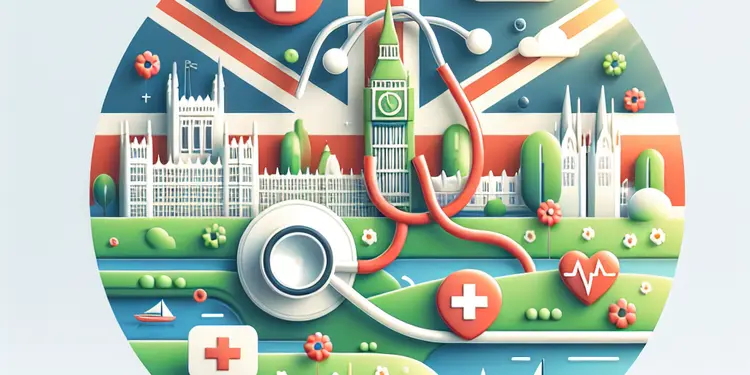
What are common treatments for health-related anxiety?
Relevance: 34%
-
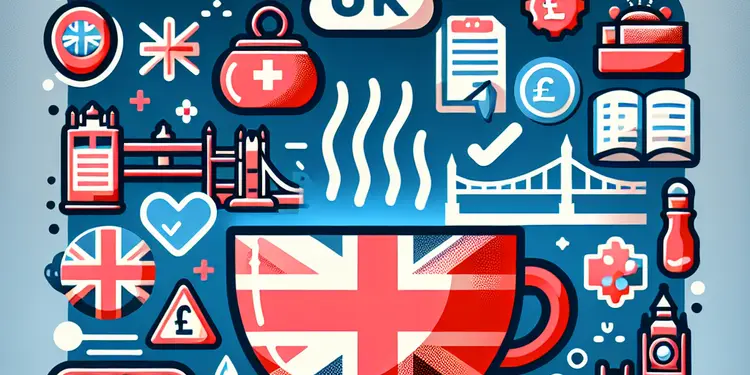
What are common symptoms of health-related anxiety?
Relevance: 33%
-

What role does the internet play in health-related anxiety?
Relevance: 32%
-

Treating anxiety and depression - www.slam.nhs.uk
Relevance: 32%
-

Is it possible to fully recover from health-related anxiety?
Relevance: 32%
-

Why is reassurance not always helpful for health-related anxiety?
Relevance: 32%
-
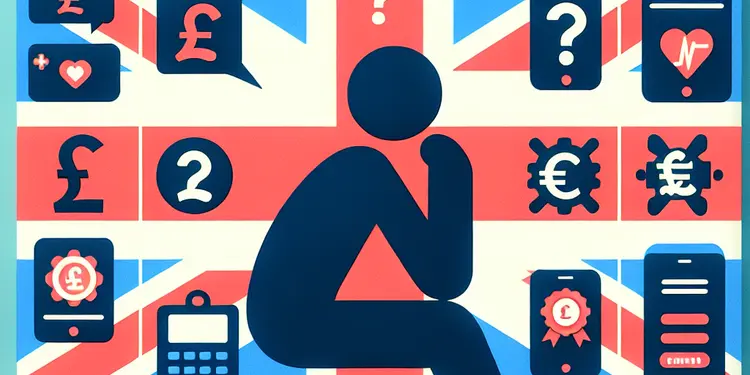
What should someone do if they suspect they have health-related anxiety?
Relevance: 32%
-

Can health-related anxiety cause physical symptoms?
Relevance: 32%
-
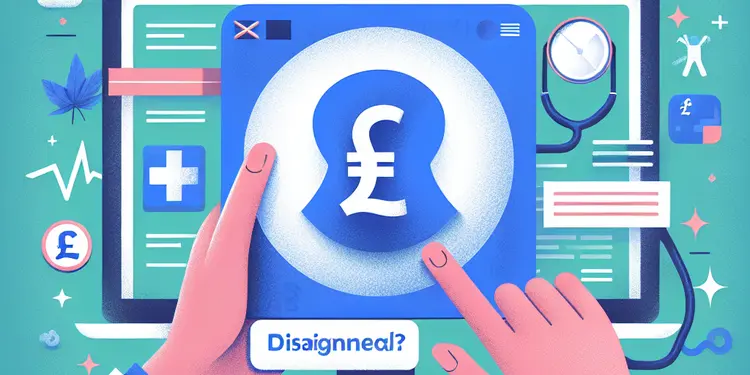
How is health-related anxiety diagnosed?
Relevance: 32%
-

Is medication effective for health-related anxiety?
Relevance: 31%
-

Can lifestyle changes help with health-related anxiety?
Relevance: 31%
-

Can health-related anxiety lead to actual health problems?
Relevance: 30%
-

Short Films About Mental Health - Anxiety
Relevance: 30%
-

How does cognitive-behavioral therapy help with health-related anxiety?
Relevance: 30%
-

Are there self-help strategies for managing health-related anxiety?
Relevance: 30%
-
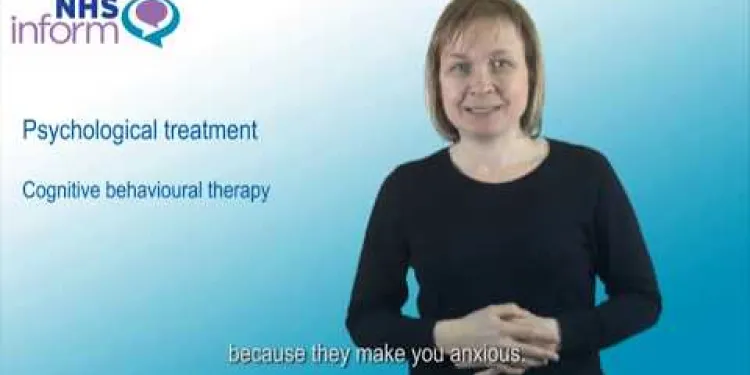
Treating generalised anxiety disorder (GAD)
Relevance: 30%
-
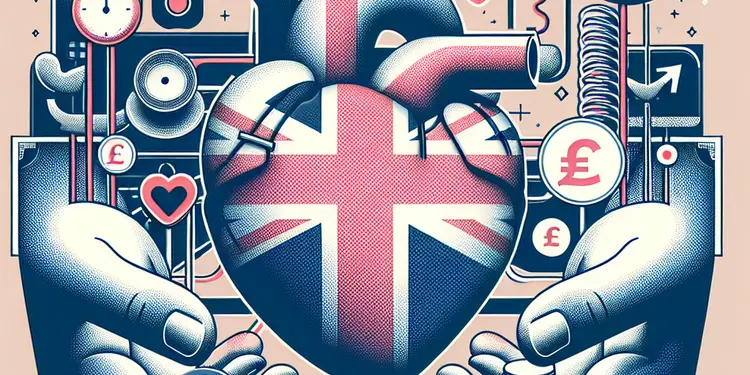
Can health-related anxiety affect relationships?
Relevance: 30%
-

Can Music Therapy Be the Key to Reducing Anxiety?
Relevance: 30%
-

Surge in HPV Vaccination Rates Among Young Women in the UK
Relevance: 30%
-

New Mental Health Strategy Launched to Address Youth Anxiety Epidemic
Relevance: 29%
-

How can family and friends support someone with health-related anxiety?
Relevance: 28%
-
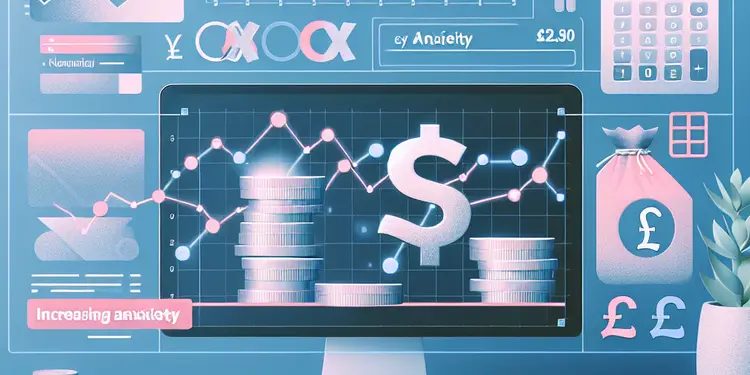
Survey Reveals Increasing Financial Anxiety Among UK Households
Relevance: 27%
-

Is there support available for people with tinnitus?
Relevance: 27%
-

Can weight loss drugs lead to mood changes or anxiety?
Relevance: 27%
-
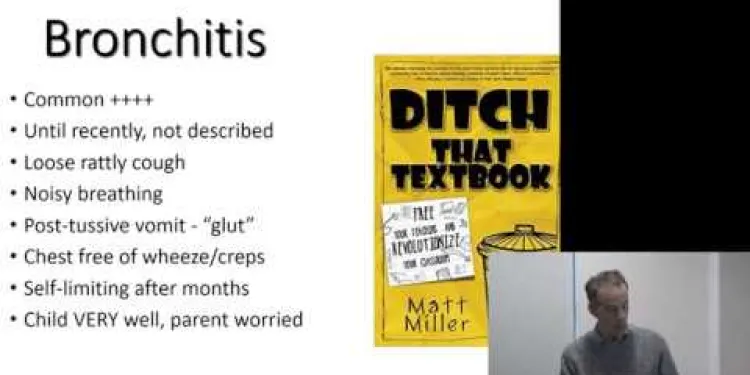
Bronchiolitis and chest infections in young children - Prof Steve Turner
Relevance: 27%
-
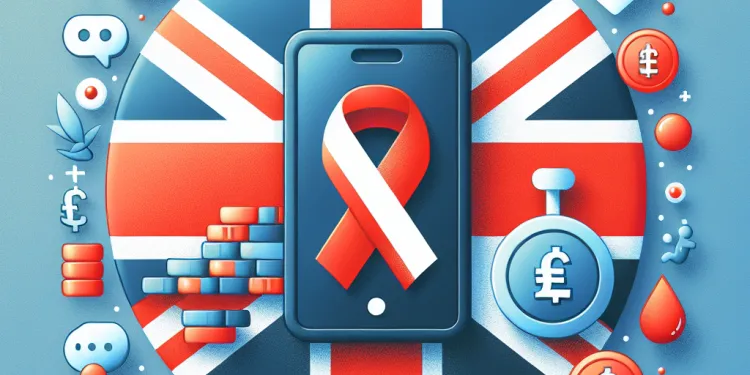
Is HIV only a concern for certain groups of people?
Relevance: 25%
BHS Link1: Comprehensive Insight
Understanding BHS Link1
BHS Link1 is an innovative platform designed to cater to the dynamic needs of businesses and individuals in the United Kingdom. It offers a seamless and integrated solution that combines modern technology with user-friendly features. BHS Link1 aims to streamline various processes and enhance overall efficiency, making it a valuable tool in today's fast-paced digital world.
Features of BHS Link1
The platform is packed with a variety of features that make it stand out in the market. Some of the key features include:
- Scalability: BHS Link1 is built to scale according to the user's needs, making it suitable for both small businesses and large enterprises.
- Security: Data security is a top priority, with advanced encryption and robust security measures in place to protect user information.
- Integration: The platform seamlessly integrates with various other systems and applications, ensuring smooth interoperability.
- User Interface: It boasts a user-friendly interface designed to make navigation and operation intuitive and hassle-free.
Benefits for UK Users
BHS Link1 offers several benefits specifically tailored for users in the United Kingdom:
- Local Support: Users can access dedicated support services based within the UK, ensuring prompt and effective assistance.
- Compliance: The platform is compliant with UK regulations and standards, providing peace of mind to users regarding legal and regulatory adherence.
- Efficiency: By simplifying processes and merging various functions into one platform, UK businesses can save time and reduce operational costs.
- Customization: BHS Link1 offers customization options to cater to the specific requirements and preferences of UK businesses and individuals.
Conclusion
In conclusion, BHS Link1 represents a versatile and efficient solution for users in the United Kingdom. Its comprehensive features, combined with local support and compliance, make it an indispensable tool for enhancing productivity and maintaining competitive edge in the digital era.
Anxiety in Young People: Understanding and Addressing the Challenge
Introduction to Anxiety in Young People
Anxiety is a common mental health issue affecting many young people across the United Kingdom. It is characterised by feelings of worry, nervousness, or fear that are strong enough to interfere with one's daily activities. While occasional anxiety is a normal part of life, excessive and persistent anxiety can severely impact a young person's social, academic, and personal development.
Causes of Anxiety in Young People
There are several factors that can contribute to anxiety in young people. Academic pressure, social dynamics, and family issues are common triggers. The digital age has introduced new challenges, with social media and online interactions sometimes exacerbating feelings of inadequacy or isolation. Biological factors, such as genetics and brain chemistry, also play a role in the development of anxiety disorders.
Recognising Symptoms of Anxiety
It is crucial to recognize the signs of anxiety in young people to provide timely support. Symptoms may include excessive worrying, restlessness, difficulty concentrating, irritability, muscle tension, and sleep disturbances. In severe cases, young people may experience panic attacks, which are sudden bouts of intense fear accompanied by physical symptoms like heart palpitations and shortness of breath.
Approaches to Managing Anxiety
Managing anxiety in young people involves a combination of strategies. It is important for parents, educators, and mental health professionals to work together. Therapy, such as cognitive-behavioral therapy (CBT), can be effective in helping young people develop coping mechanisms. In some cases, medication may be prescribed to manage symptoms. Additionally, creating a supportive environment at home and school can make a significant difference.
Resources and Support Available in the UK
The UK offers a range of resources for young people dealing with anxiety. Organisations like YoungMinds and Childline provide helplines and online support for young individuals and their families. Schools are increasingly equipped with counsellors and support groups to help address mental health concerns. The NHS also provides services for mental health evaluation and treatment, accessible through local GPs.
Conclusion
Understanding and addressing anxiety in young people is vital for fostering their well-being and ensuring they can lead fulfilling lives. By recognising the signs early and providing appropriate support, we can help young people in the UK overcome these challenges and thrive.
Anxiety in Young People
Understanding Anxiety in Young People
Anxiety is a common mental health issue that affects young people across the United Kingdom. It is characterised by excessive worry and fear that can interfere with daily activities and responsibilities. With the increasing pressures of modern life, young individuals often face a multitude of challenges that can trigger or exacerbate anxiety disorders.
Common Causes of Anxiety Among the Youth
Several factors can contribute to anxiety in young people. Academic pressures, such as exams and assignments, are significant stressors. Social expectations and peer pressure can also intensify feelings of inadequacy and anxiety. In addition, family dynamics, such as financial stress or parental discord, can deeply impact a young person’s emotional wellbeing.
Symptoms and Signs to Look Out For
Recognising anxiety in young people is crucial for timely intervention. Symptoms may include restlessness, irritability, fatigue, and difficulty concentrating. Physical manifestations can also occur, such as headaches, stomach aches, or muscle tension. Increased absenteeism from school or social withdrawal are additional red flags.
Approaches to Managing Anxiety
Addressing anxiety involves a combination of strategies. Encouraging open communication and emotional expression is essential. Schools in the UK are implementing mental health education to foster resilience. Cognitive behavioural therapy (CBT) and mindfulness-based strategies are evidence-based treatments. Furthermore, creating supportive environments at home and school can significantly alleviate anxiety symptoms.
Seeking Professional Help
When anxiety becomes overwhelming, seeking professional help is important. In the UK, the NHS provides a range of services for young people experiencing mental health issues. Youth counselling services, helplines, and mental health specialists are available to offer guidance and support. Early intervention can significantly improve outcomes for young individuals facing anxiety.
Understanding Anxiety in Young People
Anxiety is a common mental health concern, particularly among young people, and its impact is growing in the United Kingdom. Understanding the nature, causes, and ways to cope with anxiety can help young individuals manage their symptoms effectively.
What is Anxiety?
Anxiety is a feeling of unease, such as worry or fear, which can range from mild to severe. While it's normal to feel anxious in certain situations, ongoing anxiety that affects daily life and wellbeing may indicate an anxiety disorder. In young people, this can manifest as excessive worrying about school, social situations, or future events.
Causes of Anxiety in Young People
There are several factors that can contribute to anxiety in young people. Stress from academic pressure, social media influences, and family dynamics play significant roles. Additionally, the rise in social comparisons facilitated by online platforms can exacerbate feelings of inadequacy and anxiety. Genetic predisposition and significant life changes, such as moving schools or parental separation, can also trigger anxiety symptoms.
Signs and Symptoms
Recognising the signs of anxiety is crucial in providing timely support. Symptoms in young people might include restlessness, irritability, difficulty concentrating, and physical symptoms like headaches or stomach aches. Avoidance of social activities, sleep disturbances, and feelings of overwhelming worry are also common indicators.
Managing Anxiety
Coping with anxiety effectively involves a combination of self-help strategies, therapeutic interventions, and sometimes medication. Encouraging young people to engage in regular physical activities, mindfulness, and breathing exercises can alleviate anxiety symptoms. Professional support from mental health services is crucial for severe cases. In the UK, organisations like YoungMinds and Childline provide resources and helplines for young people in need.
It’s important for peers, parents, and educators to foster a supportive environment, encouraging open conversations about mental health to help mitigate stigma and support young people experiencing anxiety.
Anxiety in Young People: Understanding and Addressing the Challenge
The Prevalence of Anxiety Among Young People
Anxiety disorders are among the most common mental health issues affecting young people in the United Kingdom today. Approximately one in eight children and adolescents suffer from some form of anxiety. This prevalence highlights the need for greater awareness and understanding among parents, educators, and healthcare professionals. Factors contributing to anxiety include academic pressures, social media influences, family dynamics, and societal expectations. Recognizing the signs of anxiety early can lead to more effective interventions and support.
Symptoms and Manifestations
Young people experiencing anxiety may present a variety of symptoms, which can differ from adults. Common signs include excessive worry about everyday situations, difficulty concentrating, restlessness, irritability, and avoidance of specific places or situations. Physical symptoms, such as headaches, stomach aches, and fatigue, are also prevalent. Understanding these manifestations is crucial for detecting and addressing anxiety in young people before it escalates into more severe mental health issues.
Addressing Anxiety: Support and Treatment Options
Supporting young people with anxiety requires a multifaceted approach. Cognitive-behavioral therapy (CBT) is often recommended as an effective treatment. It helps young individuals identify and challenge their anxious thoughts while developing coping strategies. In the UK, access to mental health services for young people can be enhanced through school-based counselling, local NHS services, and charities like YoungMinds and Childline. Encouraging open communication and reducing stigma surrounding mental health are crucial steps toward ensuring that young people feel comfortable seeking help.
The Role of Schools and Communities
Schools play a pivotal role in supporting students with anxiety. Implementing mental health education within the curriculum, providing training for teachers, and creating a supportive school environment can significantly impact young people's wellbeing. Community involvement is equally vital, with local councils and youth organizations working together to create safe and supportive spaces for young people. Collaborative efforts among families, schools, and communities can foster resilience and encourage healthier coping mechanisms.
Anxiety in Young People
Understanding Anxiety in Young People
Anxiety is a common mental health condition that affects many young people in the United Kingdom. It can manifest as persistent worry, nervousness, or fear about everyday situations. Understanding the unique challenges young people face can help in identifying signs of anxiety and providing appropriate support.
Causes of Anxiety Amongst Youth
Youth anxiety can be triggered by pressure from school or university, social dynamics, family matters, and uncertainty about the future. The competitive nature of academic environments and high expectations may exacerbate stress levels. Additionally, social media can contribute to anxiety by fostering unrealistic comparisons and cyberbullying.
Identifying Symptoms of Anxiety
Symptoms of anxiety in young people include restlessness, difficulty concentrating, irritability, sleep disturbances, and physical symptoms such as headaches or stomachaches. Recognising these signs early on can be crucial for managing anxiety effectively. Parents, teachers, and peers can play important roles in identifying these symptoms.
Support and Treatment Options
There are various support and treatment options available in the UK for young people dealing with anxiety. Cognitive Behavioural Therapy (CBT) is a common psychological treatment that focuses on changing negative thought patterns. Schools and universities often have counselling services, and organisations like Childline and YoungMinds offer support online and over the phone.
Encouraging Healthy Coping Mechanisms
It is important to encourage young people to develop healthy coping strategies to manage anxiety. This can include maintaining a balanced lifestyle with regular exercise, proper nutrition, and sufficient rest. Mindfulness and relaxation techniques, such as meditation or yoga, can also be beneficial in reducing anxiety symptoms.
The Role of Community and Society
Communities and society play a significant role in addressing young people's anxiety by promoting openness about mental health. Reducing stigma around anxiety and providing education about mental health can create a supportive environment. Schools and local organisations can organise workshops and talks to increase awareness and support.
BHS Link1: What You Need to Know
What is BHS Link1?
BHS Link1 is a special online tool that helps people and businesses in the UK. It uses new technology and is easy to use. BHS Link1 helps make work faster and easier by doing many tasks for you. It is important for busy people who use computers a lot.
What BHS Link1 Can Do
BHS Link1 has a lot of cool features. Here are some important ones:
- Grows with You: BHS Link1 can grow as your needs grow. It is good for both small and big businesses.
- Safe: Keeping your information safe is very important. BHS Link1 uses strong tools to protect your data.
- Works with Other Tools: BHS Link1 can easily connect with other tools you might be using.
- Easy to Use: The platform is easy to use and you can find your way around without any problems.
Why BHS Link1 is Good for People in the UK
BHS Link1 offers special benefits for people in the UK:
- Help Nearby: There are support services in the UK that can help you quickly if you have questions.
- Follows UK Laws: BHS Link1 follows all the UK rules, so you don’t have to worry about breaking any laws.
- Gets Things Done Faster: By putting many jobs in one place, it saves time and money for UK businesses.
- Made Just for You: You can change BHS Link1 to fit what you or your business need.
End Note
To sum up, BHS Link1 is a great tool for people in the UK. It has lots of features and helps with productivity. It also follows local UK rules, making it an important tool for doing well in today's digital world.
Anxiety in Young People: Understanding and Addressing the Challenge
Introduction to Anxiety in Young People
Many young people in the UK feel anxious. This means feeling very worried, scared, or nervous. It's okay to feel like this sometimes. But if these feelings happen a lot, they can make it hard to do everyday things like schoolwork or play with friends. If a young person feels anxious very often, it can make school and life more difficult.
Causes of Anxiety in Young People
There are different things that can make young people feel anxious. They might worry about schoolwork, get stressed about friendships, or have problems at home. Social media can also make young people feel bad or lonely. Sometimes, anxiety runs in families, or it’s about how the brain works.
Recognising Symptoms of Anxiety
It is important to notice if a young person is feeling anxious so they can get help. Signs of anxiety include worrying a lot, being restless, having trouble focusing, getting annoyed easily, feeling tense, and having trouble sleeping. Some young people might even have panic attacks, which is when they feel very scared all of a sudden and have symptoms like a fast heartbeat or trouble breathing.
Approaches to Managing Anxiety
To help young people manage anxiety, different strategies can be used. It is helpful when parents, teachers, and health experts work together. Talking therapy, like cognitive-behavioral therapy (CBT), can help young people learn ways to handle anxiety. Sometimes, medicine is also needed to help with the symptoms. A supportive home and school environment is very important too.
Resources and Support Available in the UK
In the UK, there are many places that offer help for young people with anxiety. YoungMinds and Childline are organisations that you can call or contact online. Many schools have counsellors to help students. The NHS can also help with mental health through local doctors, called GPs.
Conclusion
It is important to understand and help young people who feel anxious, so they can feel better and live happy lives. By noticing signs early and giving the right help, we can support young people in the UK to face challenges and do well.
Anxiety in Young People
What is Anxiety?
Anxiety is when people feel very worried or scared. Many young people in the UK feel this way. It can make it hard to do everyday things, like schoolwork or talking to friends. Life today is busy and young people have many things to worry about, which can make anxiety worse.
Why Do Young People Feel Anxious?
There are many reasons why young people might feel anxious. Schoolwork and exams can be stressful. Feeling like you have to fit in with friends can also cause worry. Problems at home, like money troubles or parents arguing, can make young people feel anxious too.
How to Know if Someone Has Anxiety
It is important to notice if someone has anxiety so they can get help. Signs of anxiety include feeling restless, getting annoyed easily, feeling very tired, or having trouble focusing. There can also be body symptoms like headaches or tummy aches. Missing school often or not wanting to spend time with friends are also signs.
How to Help with Anxiety
There are ways to help manage anxiety. Talking and sharing feelings can help. Schools teach about mental health to help young people feel stronger. Special types of talking therapy, like cognitive behavioural therapy (CBT), can help too. It's important to have a caring environment at home and school.
Getting More Help
If someone’s anxiety feels too big, it's important to get more help. In the UK, the NHS can help young people with mental health problems. There are also places to talk to, like youth counsellors and helplines, where experts can give advice. Getting help early can really help young people feel better.
Understanding Anxiety in Young People
Many young people can feel anxious. Anxiety is when you feel worried or afraid. More people are feeling this way in the United Kingdom. Knowing why it happens and how to deal with it can help.
What is Anxiety?
Feeling anxious is feeling worried or scared. It can feel very strong or not so strong. It's normal to feel this way sometimes, but if it happens a lot and makes life hard, it might be an anxiety disorder. Young people might worry too much about school, friends, or the future.
Causes of Anxiety in Young People
Many things can make young people feel anxious. School stress, social media, and family problems are big reasons. Seeing others online can make them feel bad about themselves. Changes like moving schools or parents splitting up can also cause anxiety.
Signs and Symptoms
Knowing the signs of anxiety can help get support early. Young people with anxiety might feel restless, get angry easily, or have trouble focusing. They might also have headaches or a sore tummy. They might avoid seeing friends, have trouble sleeping, or worry a lot.
Managing Anxiety
To help with anxiety, young people can try different things. Exercise, deep breathing, and being mindful can help. Sometimes, seeing a therapist or taking medicine is needed. In the UK, places like YoungMinds and Childline can help. They have people to talk to and lots of advice.
Parents, friends, and teachers should listen and talk openly about feelings. This helps young people feel supported and less alone.
Anxiety in Young People: Understanding and Addressing the Challenge
The Prevalence of Anxiety Among Young People
Many young people in the UK have anxiety. About one in eight children and teenagers feel this way. It is important that parents, teachers, and doctors understand more about anxiety. Things like school pressure, social media, family issues, and what society expects can cause anxiety. Knowing the signs of anxiety early can help us support young people better.
Symptoms and Manifestations
Young people with anxiety might feel different from adults. They might worry a lot about everyday things, find it hard to focus, feel restless or grumpy, or avoid some places. They might also get headaches, stomach aches, or feel tired. Knowing these signs can help us see anxiety early and offer help before it becomes a bigger problem.
Addressing Anxiety: Support and Treatment Options
Helping young people with anxiety needs many different actions. Cognitive-behavioral therapy (CBT) is a treatment that can help. It teaches young people to change their anxious thoughts and find ways to cope. In the UK, schools, the NHS, and charities like YoungMinds and Childline can help provide support. It is important to talk openly and reduce the stigma about mental health, so young people feel okay asking for help.
The Role of Schools and Communities
Schools can help students with anxiety a lot. They can teach about mental health in classes, train teachers, and make a welcoming school place. Communities also need to help by creating safe spaces for young people. Families, schools, and communities should work together to help young people be strong and learn healthy ways to cope.
Anxiety in Young People
What is Anxiety in Young People?
Anxiety is a feeling of worry or fear. Many young people in the UK feel this way. It can make them feel nervous or scared about things in their daily life. Knowing what makes young people anxious can help us support them better.
Why Do Young People Get Anxious?
Young people can feel anxious because of school, friends, family problems, or worrying about the future. School can be hard because of pressure to do well. Social media can also make them feel bad by showing things that are not real or by online bullying.
How to Know If Someone is Anxious
Young people who are anxious might feel restless, have trouble focusing, feel angry, have trouble sleeping, or get headaches or tummy aches. Seeing these signs early can help in dealing with anxiety. Parents, teachers, and friends can help notice these signs.
How to Help and Treat Anxiety
There are ways to help young people with anxiety in the UK. Talking therapy, like Cognitive Behavioural Therapy (CBT), helps by changing negative thoughts. Schools and universities have counsellors, and places like Childline and YoungMinds offer help online or by phone.
Ways to Handle Anxiety
It's good for young people to learn healthy ways to cope with anxiety. This means having a balanced life with exercise, healthy eating, and enough sleep. Doing mindfulness exercises like meditation or yoga can also help them feel better.
How Communities Can Help
Communities and society can help young people by understanding mental health. Talking openly about anxiety and learning about mental health can make a supportive environment. Schools and local groups can have workshops and talks to teach and help everyone understand better.
Frequently Asked Questions
What is BHS?
BHS stands for British Home Stores, a British department store that offers a range of household goods, clothing, and more.
Where can I find BHS stores in the UK?
BHS no longer has physical stores in the UK, but you can shop online through their website.
Does BHS have an online store?
Yes, you can shop for a wide range of products on the BHS website.
What kinds of products does BHS offer?
BHS offers a variety of products, including clothing for men, women, and children, home furnishings, and lighting solutions.
How can I contact BHS customer service?
You can contact BHS customer service through their website's contact page or by calling the customer service hotline.
Does BHS offer international shipping?
Yes, BHS offers international shipping to several countries. You can find more information on their website.
Can I return items purchased from BHS?
Yes, BHS has a returns policy that allows you to return items within a specified period. Check the returns policy on the BHS website for details.
Does BHS offer gift cards?
Yes, BHS offers gift cards that can be purchased online and used for shopping on their website.
Are there any BHS discount codes or promotions available?
BHS frequently has promotions and discount codes. Check their website or sign up for their newsletter to stay updated.
Can I track my order from BHS?
Yes, once your order is shipped, you will receive a tracking number to monitor the delivery status.
Does BHS offer a newsletter?
Yes, you can sign up for the BHS newsletter to receive updates on new products, promotions, and special offers.
Does BHS provide a size guide for clothing?
Yes, BHS provides a size guide on their website to help you choose the right size for clothing items.
What payment methods does BHS accept?
BHS accepts various payment methods, including major credit cards, debit cards, and some other online payment options.
How do I create an account on the BHS website?
You can create an account on the BHS website by clicking on the 'Sign In' button and following the prompts to register.
Can I cancel or change my BHS order after it has been placed?
BHS allows you to cancel or make changes to your order within a limited time frame. Contact their customer service as soon as possible for assistance.
What are some common symptoms of anxiety in young people?
Common symptoms include excessive worrying, restlessness, difficulty concentrating, irritability, muscle tension, sleep disturbances, and avoidance of certain places or situations.
How can I tell if my child has anxiety?
Look for signs such as constant worrying, trouble sleeping, complaints of stomach aches or headaches, changes in eating habits, and avoidance of social activities or school.
What causes anxiety in young people?
Anxiety can be caused by a combination of genetic, environmental, and psychological factors. Stressful life events, family dynamics, and brain chemistry can also play roles.
What are common signs of anxiety in young people?
Common signs of anxiety in young people include excessive worrying, restlessness, difficulty concentrating, irritability, sleep disturbances, and physical symptoms such as headaches or stomachaches.
What causes anxiety in young people?
Anxiety in young people can be caused by a variety of factors such as genetics, brain chemistry, stressful life events, family dynamics, and trauma. Social pressures and academic stress can also contribute.
How can parents support a child with anxiety?
Parents can support their child by listening to their concerns, validating their feelings, encouraging open communication, maintaining routines, and seeking professional help if needed.
When should a young person seek professional help for anxiety?
A young person should seek professional help if anxiety is interfering with daily life, causing significant distress, or if self-help strategies are not effective.
What types of treatments are available for young people with anxiety?
Treatments for young people with anxiety include cognitive-behavioral therapy (CBT), medication when appropriate, and mindfulness practices. Therapy can help them manage symptoms and develop coping strategies.
How can schools support students with anxiety?
Schools can support students with anxiety by providing a supportive environment, training staff to recognise symptoms, developing individualized education plans (IEPs), and offering counseling services.
What are some coping strategies for managing anxiety in young people?
Coping strategies include regular physical activity, adequate sleep, healthy eating, mindfulness and relaxation techniques, expressive activities such as writing or art, and socializing with supportive friends.
Is anxiety common among young people in the UK?
Yes, anxiety is relatively common among young people in the UK, with many experiencing it at some point. Awareness and understanding are increasing, leading more individuals to seek help.
Can social media affect anxiety levels in young people?
Yes, social media can affect anxiety levels by exposing young people to cyberbullying, unrealistic expectations, and social pressure, which can lead to increased anxiety and stress.
How can mindfulness help with anxiety in young people?
Mindfulness can help young people manage anxiety by promoting relaxation, enhancing emotional regulation, and helping them stay present, reducing the focus on stressors and worries.
What role does diet play in anxiety management for young people?
A balanced diet can support overall mental health by providing essential nutrients that influence brain function. Foods rich in omega-3 fatty acids, vitamins, and minerals can help mitigate anxiety.
Are there any helplines available for young people struggling with anxiety in the UK?
Yes, there are multiple helplines such as Childline, YoungMinds, and Anxiety UK that offer support and resources for young people struggling with anxiety.
How can exercise benefit young people with anxiety?
Exercise can benefit young people with anxiety by releasing endorphins, reducing stress hormones, improving mood, and providing a sense of accomplishment and relaxation.
Why is sleep important for managing anxiety in young people?
Adequate sleep is crucial as it helps regulate mood, reduces stress, enhances cognitive function, and allows the body and mind to rejuvenate, all contributing to reduced anxiety levels.
Can anxiety in young people lead to other mental health issues?
Yes, if left untreated, anxiety can lead to other mental health issues such as depression, substance abuse, and can negatively impact academic and social functioning.
What causes anxiety in young people?
How common is anxiety among teenagers in the UK?
What are the signs and symptoms of anxiety in young people?
How can parents support a child with anxiety?
When should professional help be sought for a young person with anxiety?
What treatments are available for anxiety in young people?
How does school pressure contribute to anxiety in young people?
Can social media impact anxiety levels in young people?
Are there preventive measures young people can take to reduce anxiety?
How can schools help students who experience anxiety?
What role does family play in managing anxiety in young people?
Is medication necessary for treating anxiety in young people?
How can young people help their peers who have anxiety?
What is the difference between anxiety and stress in young people?
What are some effective self-help strategies for managing anxiety?
What is anxiety in young people?
Anxiety in young people is a normal and often healthy emotion. However, when a young person regularly feels disproportionate levels of anxiety, it might become a medical disorder.
What are the common signs of anxiety in young people?
Common signs include excessive worrying, restlessness, fatigue, difficulty concentrating, irritability, and sleep disturbances.
What causes anxiety in young people?
Causes may include genetics, brain chemistry, traumatic events, and stressful life situations such as exams, bullying, or family issues.
How can parents support a child with anxiety?
Parents can support by listening to their child, encouraging healthy habits, seeking professional help if necessary, and teaching coping mechanisms.
Are there specific anxiety disorders common in young people?
Yes, common ones include Generalized Anxiety Disorder (GAD), Social Anxiety Disorder, Panic Disorder, and Phobias.
Is anxiety in young people treatable?
Yes, anxiety in young people is treatable with various options including therapy, medication, lifestyle changes, and self-help strategies.
How does anxiety affect school performance?
Anxiety can lead to difficulty concentrating, missed school days, and challenges with completing assignments, which might affect overall performance.
What is Cognitive Behavioural Therapy (CBT) and how can it help?
CBT is a type of therapy that helps people manage anxiety by changing negative patterns of thought and behaviour. It is effective for many young people.
Can anxiety lead to other mental health issues?
Yes, if left untreated, anxiety can sometimes lead to depression, substance abuse, or other mental health disorders.
What are some self-help strategies for managing anxiety?
Self-help strategies include mindfulness, regular physical activity, a healthy diet, sufficient sleep, and relaxation techniques such as deep breathing.
When should a young person seek professional help for anxiety?
Professional help should be sought if anxiety significantly interferes with daily life, relationships, or school performance, or if it leads to physical symptoms.
How can teachers support students with anxiety?
Teachers can support by creating a supportive classroom environment, being aware of the signs of anxiety, offering accommodations, and communicating with parents and professionals.
Is medication effective for treating anxiety in young people?
Medication can be effective for some young people, especially when combined with therapy. It should be prescribed and monitored by a healthcare professional.
Can lifestyle changes help reduce anxiety in young people?
Yes, lifestyle changes such as regular exercise, a healthy diet, sufficient sleep, and reduced screen time can help reduce anxiety symptoms.
What role do peers play in a young person's experience of anxiety?
Peers can impact anxiety levels positively by providing support and understanding, or negatively through bullying or exclusion. Positive peer relationships can be beneficial.
What is BHS?
BHS is a short way to say British Horse Society. It is a group that helps people learn about horses and how to take care of them.
If reading is hard, you can:
- Ask someone to read with you.
- Use a reading app that reads out loud.
- Look at pictures or videos about the topic.
BHS means British Home Stores. It is a shop where you can buy things for your home, clothes, and other items.
Where are BHS shops in the UK?
You want to find BHS shops in the UK. Here is how you can do it:
- Use a map on your computer or phone. You can use Google Maps.
- Type "BHS" in the search box to see where the shops are.
- Ask someone to help you look online for BHS shop addresses.
- Look for a shop list on a website that tells you about stores in the UK.
It's a good idea to ask a friend or family member to help you if you need it!
BHS does not have any shops you can walk into in the UK. But you can still buy things from BHS on their website.
Can you shop online at BHS?
Yes, you can buy lots of things on the BHS website.
What does BHS sell?
BHS sells different things. Here are some:
- Clothes: BHS has clothes for men, women, and children.
- Home items: They sell things for your house, like furniture and curtains.
- Lighting: You can find lamps and lights.
- Decorations: BHS has pretty things to make your home nice.
You can look at pictures or ask someone to help if you need.
BHS sells different things. They have clothes for men, women, and kids. They also sell things for your home and lights.
How can I contact BHS customer service?
If you want to talk to BHS customer service, here is how you can do it:
- Use the phone: You can call them on the phone.
- Send an email: You can write them an email.
- Visit their website: Go to the BHS website and look for a "Contact Us" page.
- Use social media: You can send them a message on places like Facebook or Twitter.
If reading is hard, you can ask someone to help you read or write the messages. You can also use a tool like a screen reader to read for you.
You can talk to BHS customer service in two ways. You can use their website contact page. Or you can call them on the phone.
Can BHS send products to other countries?
BHS can send items all over the world. If you want to buy something and you live in a different country, BHS can send it to you.
Here is how you can get help:
- You can ask someone to help you shop online.
- Use a tool that reads text out loud if you find reading hard.
- Look for pictures or icons on the website. They can help you understand what to do.
Yes, BHS can send things to other countries. You can learn more by looking on their website.
Can I take things back to BHS?
If you bought something from BHS and want to take it back, you can. It's called "returning an item."
Here are some tips to help you:
- Keep the receipt. A receipt is a piece of paper that shows what you bought.
- Return the item soon. Don’t wait too long after buying it.
- The item should be unused. It should look like new.
If you need help returning an item, ask a friend or family member to help you.
Yes, you can return things to BHS. You have a set time to do this. Look on the BHS website to find out more.
Can you buy gift cards from BHS?
Yes, you can buy gift cards from BHS. You can get them online and use them to shop on their website.
Can I get discounts or special offers for BHS?
BHS often has sales and special codes for discounts. Visit their website or sign up for their newsletter to keep up to date.
How can I see where my order from BHS is?
Yes, when we send your order, we will give you a special number. This number helps you see where your order is and when it will arrive.
Can I get news updates from BHS?
Yes, you can sign up for the BHS newsletter. This will help you get news about new things to buy, sales, and special deals.
Does BHS have a size guide for clothes?
Yes, BHS has a size guide to help you choose the right clothes. You can look at the size guide when shopping to find the best fit.
If you need more help, you can ask someone for support. You can also use tools like a ruler or measuring tape to check your size.
Yes, BHS has a help page on their website. It can show you what size clothes to buy.
How can I pay at BHS?
BHS takes these types of payment:
- Cash: You can use money.
- Debit/Credit Cards: Use your card to pay.
- Online Payments: Use Apple Pay or Google Pay if you shop online.
- Gift Cards: You can use a BHS gift card.
Need help? Ask a friend or use a calculator for prices.
BHS takes different ways to pay. You can use big credit cards, debit cards, and some online payment options.
How can I make an account on the BHS website?
To make an account on the BHS website, follow these simple steps.
Step 1: Go to the BHS website on your computer or phone.
Step 2: Look for a button or link that says "Sign Up" or "Create Account." Click on it.
Step 3: Fill in your details. You might need to enter your name, email address, and create a password.
Step 4: Check your email. You might get an email asking you to confirm your new account. Follow the instructions in the email.
Tools to help:
You can ask a friend or family member to help you if you find it hard.
You can use a screen reader if you find it easier to listen.
You can make an account on the BHS website. First, click the 'Sign In' button. Then follow the steps to sign up.
Can I stop or change my BHS order after I made it?
Do you want to stop or change your order? You might be able to do this. Look at the BHS website to find help. You can also ask someone to help you call BHS customer service.
You can stop or change your order with BHS, but only for a short time. Talk to their customer service quickly to get help.
What are signs of feeling worried in young people?
Young people can feel worried or scared sometimes. Here are some signs:
- Feeling really nervous or scared
- Finding it hard to relax
- Having a fast heartbeat
- Feeling shaky or sweaty
- Finding it hard to sleep
- Worrying a lot about things
If you or someone you know feels this way, it's good to talk to a trusted adult. They can help.
Here are some common signs that someone might be worried or anxious:
- Worrying a lot.
- Feeling very tense or restless.
- Finding it hard to focus on things.
- Getting annoyed or angry easily.
- Muscles feel tight or sore.
- Having trouble sleeping well.
- Staying away from some places or things.
You can try using picture cards or breathing exercises to help feel calm.
How do I know if my child is worried or scared?
Children can feel worried and scared sometimes. Here are ways to help you know if your child feels this way:
- They might say their tummy hurts a lot.
- They might not want to go to school.
- They might seem very nervous or fidgety.
- They might have trouble sleeping at night.
- They might cry or get upset easily.
If you think your child is worried, talk to them gently. Ask them how they feel. You can help them by:
- Listening to what they say.
- Giving them hugs and comfort.
- Helping them understand it's okay to feel this way.
- Using drawing or toys to help them talk.
- Finding a quiet time each day to talk about happy things.
If you are still worried, you can talk to a teacher or a doctor. They can help too.
Watch for signs like always worrying, hard time sleeping, saying their tummy or head hurts, eating differently, and trying not to see friends or go to school.
What makes young people feel worried?
Young people can feel worried about different things. Here are some common reasons:
- School: Homework and tests can make young people feel stressed.
- Friends: Sometimes, having problems with friends can make them upset.
- Family: Changes at home, like moving to a new house, can be hard.
- Big Changes: Starting a new school or moving to a new place can feel scary.
To help with these feelings, young people can try:
- Talking: Share how you feel with someone you trust.
- Relaxing: Try deep breathing or listening to calm music.
- Getting help: It's okay to ask for help from a teacher or counselor.
Feeling worried or scared is called anxiety. It can happen for different reasons. It might be because of your genes, things around you, or how you think and feel. Sometimes bad things happen in life, like trouble at home or school. This can also make you feel anxious. Your brain might work in a way that makes you feel this way too.
If you feel this way a lot, here are some things that can help:
- Talk to someone you trust about how you feel.
- Try deep breathing or counting to calm down when anxious.
- Do activities you enjoy to take your mind off worries.
- Ask a teacher or grown-up for support if you need it.
What are signs of feeling worried in young people?
Here are some signs that a young person might be feeling worried:
- Feeling very scared even when there is nothing to be scared of.
- Getting upset or angry more easily than usual.
- Finding it hard to focus on things.
- Not wanting to go to school or be with friends.
- Having a hard time sleeping at night.
- Feeling sick or having a tummy ache a lot.
- Feeling tired a lot, even after sleeping.
Supportive tools can help. Talking to a teacher or parent is a good start. They can listen and help you feel better. Breathing exercises and drawing are good ways to help calm down too.
Here are some signs that a young person might feel worried or anxious: they worry a lot, can't sit still, find it hard to focus, get annoyed easily, have trouble sleeping, or feel sick with headaches or tummy aches.
What makes young people feel worried?
Many things can make young people feel worried or anxious. Here are some common causes:
- School: Homework and tests can be hard.
- Friends: Sometimes friends can argue or be unkind.
- Family: Changes at home, like moving or parents arguing, can be upsetting.
- Big changes: New things, like moving to a new school, can feel scary.
Ways to feel better include:
- Talk to someone: Share your feelings with a parent, teacher, or friend.
- Breathe deeply: Breathing slowly can help you feel calm.
- Do something fun: Playing or drawing can help you relax.
Remember, it's okay to ask for help if you're feeling worried.
Young people can feel worried or scared because of different reasons. It might be because of their family, what happens in their brains, or things that happen in their life. Problems at home or bad experiences can also make them feel anxious. Feeling pressure from friends or having too much school work can make it worse too.
How can parents help a child who is worried?
Parents can use simple words and a gentle voice to talk to their child.
They can listen to how the child is feeling.
Parents can also spend fun time together, like playing games.
It helps to keep a routine, like having regular meal times and bedtimes.
Parents can try breathing exercises with the child to help them feel calm.
There are books and videos that can help children understand their feelings.
If a child is very worried, parents can talk to a teacher or a doctor for more help.
Parents can help their child by:
- Listening when the child talks about their worries.
- Letting the child know it is okay to feel how they feel.
- Telling the child it is good to talk about things.
- Keeping daily routines the same.
- Getting help from a doctor or counselor if needed.
When should a young person get help for feeling worried?
If you often feel very worried and it does not go away, it is important to get help. Here are signs that you should talk to someone:
- You feel worried all the time.
- Your worries stop you from doing things you like.
- You find it hard to sleep or eat because of your worries.
- You feel so worried that it makes you feel unwell.
If you feel this way, talk to a trusted adult. They can help you find a doctor or therapist who can help.
Tools like soothing music or drawing can help you feel better. Breathing exercises and talking about your feelings can also help.
A young person should talk to a doctor or counselor if feeling worried makes it hard to do everyday things, feels really upsetting, or if trying simple things to feel better isn’t working.
What help can young people get for anxiety?
Young people who feel very worried can get different kinds of help.
Here are some ways to feel better:
- Talking to Someone: Talking to a therapist or counselor can help. They listen and give advice.
- Relaxing Exercises: Doing exercises like deep breathing can make you feel calm.
- Medicine: A doctor might give you medicine to help you feel less worried.
- Support Groups: Joining a group with other young people who feel the same can be helpful.
Remember, it's okay to ask for help. Tools like drawing or writing in a diary can also help you express your feelings.
There are ways to help kids with anxiety. One way is talking therapy, which is called cognitive-behavioral therapy or CBT. Sometimes, medicine can help too. Doing mindfulness, like deep breathing and staying calm, can also be good. These things can help kids feel better and learn how to cope when they feel worried.
How can schools help students who feel worried?
Schools can help students who feel worried or anxious in different ways. Here are some easy ideas:
- Safe Spaces: Make a quiet room at school where students can go to calm down.
- Talk Time: Have someone at school, like a counselor, to talk and listen to students' feelings.
- Teach Calm Techniques: Show students ways to relax, like taking deep breaths or counting to ten.
- Friends and Groups: Encourage students to make friends and join clubs to feel supported.
- Positive Notes: Give students encouraging words to make them feel good and brave.
If you are a teacher or parent, you can also use apps or tools that help children feel calm and happy.
Schools can help kids who feel worried. They can make a safe and caring place for kids. Teachers and staff can learn how to see when a student is worried. Schools can also make special plans for each worried student to help them learn. They can have counselors to talk and help students feel better.
How can young people deal with feeling very worried?
Feeling worried is called anxiety. Here are some ways to feel better:
- Take deep breaths: Breathe in slowly and then breathe out slowly.
- Talk to someone: Tell a friend or an adult you trust how you feel.
- Exercise: Go for a walk, ride a bike, or play a sport to help calm down.
- Draw or write: Put your feelings on paper to help understand them.
- Use apps: Some phone apps can help you relax, like calming music or meditation.
These ideas can help young people when they feel worried or scared.
Here are some ways to feel better:
- Do some exercise regularly.
- Make sure to get enough sleep.
- Eat healthy foods.
- Try relaxing things like deep breathing or calming music.
- Draw, write, or make art to express how you feel.
- Talk and spend time with friends who support you.
Using tools like calming apps or talking to someone you trust can help too.
Do many young people in the UK feel worried?
Lots of young people in the UK feel worried and stressed. It's normal to feel this way sometimes.
If you feel worried, it can help to talk to someone you trust, like a parent or a teacher.
Other things that can help are deep breathing, drawing, or playing your favorite game. There are also apps and websites designed to help with feeling calm.
Yes, many young people in the UK feel worried or anxious. A lot of them feel this way sometimes. People are learning more about anxiety, so more young people are asking for help.
Can social media make young people feel more anxious?
Social media are websites and apps like Facebook, Instagram, and TikTok.
Sometimes, using social media might make kids and teens feel worried or stressed. This is called anxiety.
It's good to talk to someone you trust if social media is making you feel this way. It can help to take breaks from social media too.
Using tools to limit screen time can be helpful. Ask a parent, teacher, or friend for support if you need it.
Yes, social media can make people feel worried. It can show young people mean messages, make them feel they have to be perfect, and make them feel like they have to act a certain way. This can make them feel more worried and stressed.
Some things that might help are:
- Talking to someone you trust
- Taking breaks from social media
- Doing fun activities you enjoy
- Using apps to help you calm down and relax
How can being mindful help with feeling worried?
Being mindful means paying close attention to what you are doing right now. This can help you feel less worried.
If you practice being mindful, it can help you feel calm and relaxed. It’s like taking a big, deep breath and noticing the things around you.
Try sitting quietly and focusing on your breath. Listen to calming music or use apps that guide you through mindfulness exercises. This can be a good way to start.
Remember, it’s okay to feel worried sometimes. But being mindful can help make those worries smaller.
Mindfulness can help kids feel less worried. It helps them relax, control their feelings better, and focus on what is happening right now instead of worrying about things.
How can food help young people feel less worried?
Eating the right food can help your brain work well and make you feel better. When you eat foods that have things like omega-3s, vitamins, and minerals, it can help you feel less worried.
Can young people in the UK call anyone for help if they feel worried?
Yes, there are phone numbers that can help, like Childline, YoungMinds, and Anxiety UK. They can help young people who feel worried or scared.
How does exercise help young people feel less worried?
Exercise can make young people feel better when they are worried. Here are some ways it helps:
- Exercise can make you happy. It helps your brain make "feel-good" chemicals.
- Being active helps you sleep better.
- Playing sports or games can help you make new friends.
- Exercise gives you energy and makes your body strong.
Here are some ways to start:
- Go for a walk or run outside.
- Join a sports team, like soccer or basketball.
- Try dancing or yoga at home.
- Ride a bike with a friend.
Ask a parent or teacher for help if you want to try something new.
Exercise helps kids and teens who feel worried or scared. It makes them feel better by:
- Making happy chemicals in the body. - Lowering stress. - Helping them feel happier. - Giving them a sense of success and calm.
Try doing activities you like, like playing outside or dancing. Listening to music or using an app to guide you can be fun too!
Why is sleep important for helping young people feel less worried?
Getting enough sleep helps young people feel calm and happy. When you sleep well, your brain gets a rest, and you feel better the next day.
If you don't sleep enough, you might feel more worried or stressed. This can make it hard to pay attention in school or enjoy spending time with friends.
To sleep better, try going to bed at the same time every night. You can also read a nice book or listen to calm music before bed.
If you often have trouble sleeping or feel very worried, talk to an adult or a doctor. They can help you find ways to feel better.
Getting enough sleep is very important. Sleep helps you feel better, think better, and be less stressed. When you sleep well, your body and mind get a chance to rest and feel better. This can help you feel less worried.
Can feeling worried make young people have other mental health problems?
Sometimes, feeling worried a lot can lead to other problems. These problems could be feeling very sad or having trouble with paying attention.
It's good to talk to someone if you feel worried all the time. You can talk to a parent, teacher, or a doctor. They can help you feel better.
Things like drawing, listening to music, or playing outside might help you when you feel worried.
Yes, if you don't get help for anxiety, it can cause other problems. It might make you feel sad, make you use drugs or alcohol, and can make it hard to do well in school or make friends.
What makes young people feel worried?
Young people can feel worried for many reasons. Here are some things that can make them feel like this:
- School can be hard. Homework and tests can be stressful.
- Making new friends or having problems with friends can be tough.
- Family issues can make them feel upset.
- Feeling different or not fitting in can be hard.
To help when feeling worried, try these ideas:
- Talk to someone you trust, like a parent, teacher, or friend.
- Write down your feelings in a journal.
- Take deep breaths and try to relax.
- Do something fun that makes you happy.
How many teenagers in the UK feel worried or scared a lot?
Let's work together to translate the content into simple language that is easy to understand. Here's a short and clear version:
What does the answer say?
We need to make sure everyone can read and understand this information easily. So, let's make the words simpler.
How can we help?
1. Look at each word and use easy words. Example: Change "difficult" to "hard."
2. Keep sentences short.
3. Use tools like a dictionary if you see a word you don’t know.
4. Ask someone to help you if you're stuck.
What tools can help you read better?
- Use apps that read text out loud.
- Try using colored overlays to help you see text better.
- Practice reading with simple books first.
We hope these tips make reading easier and more fun for you!
What are the signs of anxiety in kids and teens?
Kids and teens with anxiety might:
- Worry a lot
- Feel scared or nervous
- Have trouble sleeping
- Complain of stomach aches or headaches
- Find it hard to concentrate
- Avoid certain places or activities
If you think a kid or teen is anxious, try talking to them about their feelings. Listening and offering support can help. If it continues, speaking to a doctor or counselor might be a good idea.
This is a paragraph space. It's important for organizing text to make it easier to read.
Title: How We Learn
Learning means understanding new things. We learn by listening, seeing, or doing.
Ways to Learn
- Listen: Hear words or sounds to get information.
- See: Look at pictures or read words to learn.
- Do: Try things out with your hands to understand better.
How to Make Learning Easier
Here are some tips to help you learn:
- Use Big Text: Make letters bigger so they are easier to read.
- Break it Down: Take small steps when learning new stuff.
- Ask for Help: Talk to a teacher or friend if you don't understand.
- Use Pictures: Look at pictures to help you learn and remember.
Always choose the ways that work best for you. Learning can be fun and easy when you find what helps you most.
How can parents help a child who feels worried?
Parents can help in these ways:
- Talk to your child about their worries.
- Listen and be patient.
- Help them find ways to stay calm, like deep breathing.
- Make a routine so they know what to expect.
- Encourage them to try fun and relaxing activities.
- Be supportive and reassuring.
These tips can help your child feel better.
Many people find reading hard. So, here is how to make it easier.
Title: How to Read Better
Use Bigger Text: Make text bigger on your screen or book.
Use a Finger or Ruler: Use your finger or ruler to follow along the lines.
Take Breaks: Look away from the page sometimes and rest your eyes.
Read Out Loud: Read the words out loud to hear them better.
Ask for Help: If you find a word hard, ask someone to help.
Use Audio Books: Listen to the book instead of reading it.
Use Reading Apps: Use special apps that read for you or help you read.
These tips can help make reading easier! Remember, everyone learns at their own pace.
When should you get help for a young person who feels worried?
Young people sometimes feel worried or scared. This is okay. But if they feel worried for a long time or it stops them from doing things they like, they may need help.
Here are some signs to look for:
- The young person feels worried every day.
- Worry stops them from going to school or being with friends.
- They have trouble sleeping or eating because of worry.
- They feel like they can't handle their feelings.
If you notice these signs, it can help to talk to a doctor or a counselor. They know how to help young people feel better.
You can also try using calmer tools and techniques like deep breathing or drawing. These can make the young person feel more relaxed.
Hi there! Let’s talk about something and make it easy to understand. If things are hard to read, that’s okay! Here’s what you can do:
Break It Down: Read a little bit at a time. Don’t rush. Take it step by step.
Use a Ruler: Put a ruler under each line you read. This helps you focus on one line.
Ask for Help: If you don’t know a word, ask someone. They can explain it.
Take Breaks: Don’t read for too long. Take breaks when you feel tired.
Use Pictures: Sometimes pictures help us understand better. Look for them if you can.
Keep trying! You’re doing great, and it’s okay to ask for help anytime you need it.
What treatments can help young people with anxiety?
If you feel worried or scared a lot, there are things that can help.
Here are some ways to feel better:
- Talking to Someone: You can talk to a doctor or a counselor. They can help you understand your feelings.
- Special Classes: You can join groups to learn how to handle anxious feelings. These are called CBT classes.
- Relaxing: Try breathing slowly, doing yoga, or listening to calm music to feel more relaxed.
- Medicine: Sometimes, doctors give medicine that helps you feel less anxious. They will talk to you and your parents about it.
Remember, you are not alone. Lots of young people feel the same way. There are people and things that can help you feel better.
Here is a simple version of the answer to help everyone understand:
Title of the Answer
This is a simple way to explain the answer. Let's break it into small steps:
Step 1: Read Slowly
Take your time to read. It's okay to go slow. You will understand more if you take your time.
Step 2: Use Tools
Try using tools to help you read better. Here are some tools that can help:
- Reading Ruler: This helps you keep track of lines when you read.
- Text-to-Speech: This tool reads the words out loud for you.
Step 3: Ask for Help
If you don't understand something, it's cool to ask someone for help. A friend, a teacher, or a parent can help explain things.
Step 4: Practice Often
The more you practice reading, the better you will get at it. Try reading a little bit every day.
Remember, everyone learns at their own pace. Keep trying, and it will get easier!
How does school stress make young people feel worried?
School can make kids feel stressed and worried. This is called anxiety. Let's look at how school stress can make young people feel this way.
- Lots of Homework: Doing too much homework can make kids feel worried and tired.
- Tests: When kids have tests, they might worry about getting good grades.
- Fitting In: Kids want to be liked by their friends. This can be stressful sometimes.
- Tools to Help: Talking to a teacher or using 'calm down' apps can help kids feel better.
If you are feeling worried, it's okay to ask for help. Talking to someone like a parent, teacher, or friend can make you feel better.
Here is something you can use to help you understand better!
Understanding the Planets
Do you want to learn about the planets? This will help you!
The Sun
The Sun is a big, hot ball of fire. It gives us light and warmth. It is very important for life on Earth.
The Earth
We live on Earth. It is a planet with lots of water and land. We have plants, animals, and people here.
Moon
The Moon goes around the Earth. Sometimes it looks big and round in the sky. It is much smaller than the Earth.
Mars
Mars is another planet. It is red and dusty. People want to learn more about it.
Jupiter
Jupiter is very big! It has many moons. One of its moons is called Europa.
Here are some things you can use to help you read:
- Ask someone to read with you.
- Point to the words with your finger.
- Take breaks if you feel tired.
Keep learning and have fun!
Can social media make young people feel anxious?
Can social media make young people feel worried or nervous?
- Social media is where people talk and share pictures online.
- Sometimes, social media can make young people feel anxious or scared.
- It's important to take breaks and talk to someone if you feel worried.
- You can use tools like apps to help you relax.
How can young people stop feeling worried?
Here are some ways to help stop feeling worried:
- Talk to someone you trust.
- Write down your feelings in a diary.
- Take slow, deep breaths to relax.
- Do things you enjoy, like playing a game or drawing.
- Exercise, like going for a walk or playing outside.
- Use apps that help you feel calm, like relaxation apps.
How can schools help students who feel worried or nervous?
Here are some ways schools can help:
- Quiet Spaces: Schools can have quiet places where students can go to feel calm and relax.
- Talking to Someone: There can be teachers or counselors to talk to if a student feels worried.
- Breathing Exercises: Learning to take deep breaths can help students feel better.
- Drawing or Writing: Students can draw or write about their feelings to help understand them.
- Classroom Activities: Fun activities or games can help students feel happier and safe.
These tools and ideas can make students feel more comfortable and less worried at school.
Hello! This is an empty paragraph. It doesn't have any words to show.
How can family help young people with anxiety?
Families are important in helping young people feel better when they are worried or scared.
Here are ways families can help:
- Listen to the young person's feelings.
- Talk about worries together.
- Help find fun and relaxing activities.
- Encourage them to take deep breaths when they feel anxious.
Using tools like picture books or calming music can also help young people feel better.
Here is the translation of the text into a clear and simple format:
How Do Plants Grow?
Plants need four things to grow:
- Sunlight
- Water
- Air
- Soil (dirt)
Sunlight:
Plants use sunlight to make food. They have parts called leaves that soak up the sun.
Water:
Plants drink water through their roots. Water helps them stay strong and grow tall.
Air:
Plants need air to breathe. They use something called carbon dioxide from the air.
Soil:
Soil, or dirt, holds the plant in place. It gives the plant food to help it grow.
What Can Help?
To better understand, you can try these:
- Pictures: Look at pictures of plants to see how they grow.
- Videos: Watch videos about plants. They show you how plants change over time.
- Stories: Read simple stories about plants. This makes it fun to learn.
Remember, learning about plants is fun! Take your time and enjoy watching how they grow.
Do young people need medicine to feel less worried?
Young people sometimes feel very worried or scared. This is called anxiety. Some people take medicine to help them feel better.
But not everyone needs medicine. There are other ways to help too. Talking to someone you trust is good. Breathing exercises or playing a favorite game can help calm your mind.
If you are worried a lot, it is important to talk to a doctor. They can help you choose the best way to feel better. Remember, you are not alone, and there are people who care and want to help you.
How can young people help friends who feel worried?
Here are some ideas to help friends who feel nervous or scared:
- Listen to them: Sit with them and listen when they want to talk.
- Be kind: Show them you care with kind words and smiles.
- Help them relax: You can try breathing together slowly to feel calm.
- Spend time together: Do fun things like drawing or playing games.
- Tell an adult: If they are very worried, tell a teacher or parent who can help.
Use helpful tools like videos or apps that teach relaxation tricks. Encourage them to draw or write about their feelings. Remind them that they are not alone.
This is a translation of text into a simple format for easier reading. The text is for people who may find reading harder. It is written using simple words and short sentences.
Staying Healthy
It is important to stay healthy. Here are some tips:
Eat Well
Eating good food helps you feel good. Try to eat fruits and vegetables every day.
Exercise
Moving your body is important. You can run, walk, or play a sport.
Sleep
Sleeping helps your body rest. Try to sleep about 8 hours each night.
Ask for Help
If you need help, ask someone. You can talk to a parent, a teacher, or a friend.
Those are some ways to stay healthy. Remember, being healthy makes you feel better!
How are anxiety and stress different for young people?
How can I help myself feel less worried?
Here are some easy ways to feel better when you are worried:
- Take Deep Breaths: Breathe in slowly and deeply, then let it out. This can help you feel calm.
- Talk to Someone: Share your worries with a friend or family member. Talking can make you feel better.
- Write it Down: Write about what makes you worried in a notebook or journal.
- Move Your Body: Do some exercise, like walking or dancing. This can help your body relax.
- Make a Fun Playlist: Listen to your favorite music. Music can help change your mood.
- Try to Relax: Sit quietly, close your eyes, and think of a happy place.
Try different things to see what works best for you.
If you keep feeling worried, ask an adult for help. There are people who can help you.
This means changing words so they are easy to understand. I will write in short and simple sentences. I want to help everyone read better.
What is Family Support?
Family support is help for families. It can be for parents or kids. It makes things easier at home.
Why is it Important?
Family support is important because it helps people feel happy and safe. It helps with problems like money or stress.
How Can We Get Support?
You can get support from family, friends, or groups. You can ask for help when you need it. It’s okay to talk about your feelings.
Tools to Help You
There are things that can help, like:
- Books with pictures
- Videos
- Apps for talking about feelings
What Can You Do?
Here are some tips to try:
- Read together
- Talk about your day
- Ask for help if you need it
These things can make family life better and happier!
What is anxiety in young people?
Anxiety is when you feel very worried or scared. Young people might feel like this too. It can happen to anyone.
Sometimes, you might worry a lot about school, friends, or home. It can make your heart beat fast or make your tummy feel funny.
If you feel like this, it's okay to talk to someone you trust, like a parent or a teacher. They can help you feel better.
Try to breathe slowly, count to ten, or draw a picture. These things can help you feel calm and happy again.
Feeling worried or nervous is normal for young people. It is a healthy feeling. But if a young person feels very worried all the time, it might be a problem that needs help.
What are the common signs of anxiety in young people?
Lots of young people feel scared or worried sometimes. This is called anxiety.
Here are some things that show a young person might feel anxious:
- They worry a lot about things.
- They feel scared when there is nothing to be afraid of.
- They have trouble sleeping.
- They get upset or angry easily.
- They feel tired a lot of the time.
It can help to talk to someone you trust, like a parent or a teacher.
Doing things that make you happy, like drawing or playing outside, can help too.
Signs to look out for are:
- Worrying a lot
- Feeling on edge
- Getting tired easily
- Finding it hard to focus
- Getting grumpy
- Having trouble sleeping
Tools that can help include:
- Using a planner to stay organized
- Taking deep breaths to feel calm
- Making time for fun and rest
Why do young people feel worried?
Many things can make young people feel worried or nervous. Here are some reasons:
- School: Homework, tests, and fitting in with friends can be hard.
- Family: Changes at home, like moving or parents arguing, can be upsetting.
- Friends: Sometimes friends argue, or it feels like nobody understands.
- Big changes: Things like starting a new school can be scary.
Tip: If you're feeling worried, try talking to someone you trust, like a parent, teacher, or friend. They can help you feel better.
Why does this happen?
There are different reasons. It can be because of your family's health history, the way your brain works, bad or scary events, or tough times like exams, bullying, or family problems.
If you find it hard to understand, ask someone you trust to help explain. You can also use apps or tools that read text out loud to you.
How can parents help a child who feels worried?
Parents can do many things to help a child who feels worried. Here are some tips:
- Listen: Let your child talk about their feelings. Show them you care.
- Be calm: If you stay calm, your child will feel safer.
- Use simple words: Explain what anxiety is in a way your child can understand.
- Routine: Keep a regular daily routine. It helps children feel safe.
- Practice breathing: Teach your child to take slow, deep breaths when they feel worried.
- Draw or write: Encourage your child to draw pictures or write about their feelings.
- Positive thoughts: Help your child think positive and happy thoughts.
- Go outside: Spending time in nature and playing outside can help your child feel better.
Parents can help by listening to their child, saying "good job" when they make healthy choices, getting help from a doctor if needed, and teaching ways to calm down when upset.
Do young people get any special kinds of anxiety?
Yes, there are different types. Some of the common ones are:
- Feeling worried all the time (Generalized Anxiety Disorder).
- Being very shy and scared in groups (Social Anxiety Disorder).
- Sudden fear or panic attacks (Panic Disorder).
- Being very afraid of something specific, like spiders or heights (Phobias).
If you feel this way, talking to someone can help, like a parent, teacher, or doctor.
Can we help young people with anxiety feel better?
Yes, young people with anxiety can get help and feel better.
Here are some ways to help:
- Talk to a doctor or a counselor. They can give good advice.
- Try to relax. Breathing exercises or listening to calming music can help.
- Talk to someone you trust. Sharing feelings can be helpful.
- Exercise or play outside. It can make you feel happier.
- Use apps designed to help relax, like meditation apps.
Yes, young people can get help for anxiety. They can try therapy, take medicine, change their daily habits, or use self-help tips.
How does feeling worried affect doing well in school?
Feeling worried can make it hard to focus. This might mean missing school and having trouble finishing your homework. This can affect how well you do in school.
What is Cognitive Behavioural Therapy (CBT) and how can it help?
Cognitive Behavioural Therapy is called CBT. It is a talking therapy. It helps people change the way they think and act. CBT can make people feel better.
How can CBT help?
CBT helps people with different problems. It can help if you feel sad or worried a lot. CBT helps you understand your thoughts and feelings. It shows you how to change the way you think. This can make you feel happier and less worried.
Useful tools and tips:
- Talk to a therapist. They can help you with CBT.
- Write down your thoughts in a notebook. This can help you understand your feelings.
- Practice deep breathing to feel calm.
- Ask questions if you do not understand something.
CBT is a way to help people feel less worried. It helps by changing bad thoughts and actions. Many young people find it helpful.
Can feeling worried cause other mental health problems?
Yes, if you do not get help for anxiety, it can sometimes cause depression. It might also make someone use alcohol or drugs. Anxiety can lead to other mental health problems too.
How can you help yourself feel less worried?
Here are some things you can do to feel better:
- Think about what's happening right now. This is called "mindfulness."
- Move your body by doing things like walking or playing.
- Eat good food that helps your body stay strong.
- Get enough sleep so you're not too tired.
- Breathe in and out slowly to help you relax.
When should a young person get help for feeling anxious?
If a young person feels worried a lot, they should ask for help.
Here are some signs that they might need help:
- They feel nervous or scared all the time.
- They have trouble sleeping.
- They feel sad or upset a lot.
- They have trouble concentrating in school.
- They stop doing things they used to enjoy.
If they notice these signs, talking to an adult like a parent, teacher, or counselor can help. They can also use apps or websites that help with feeling calm. It's important they know they are not alone and help is available.
If worry makes it hard for you to do your daily activities, make friends, do well in school, or causes you to feel sick, it's a good idea to talk to a doctor or a counselor. A counselor is a person who helps you talk about your feelings and find ways to feel better.
How can teachers help students who feel worried?
Teachers can use different ways to help students who feel worried. Here are some ideas:
- Listen and Talk: Spend time listening to students. Let them talk about their feelings.
- Make a Calm Space: Create a quiet area in the classroom where students can relax.
- Teach Deep Breathing: Show students how to take deep breaths to calm down.
- Give Clear Instructions: Use simple words and short sentences when explaining tasks.
- Routine Helps: Keep a regular schedule so students know what to expect each day.
- Use Visual Aids: Support learning with pictures and charts.
These ideas can make school easier and happier for students who feel worried. Teachers can also talk to parents or counselors for more help.
Teachers can help by making the classroom a kind place, noticing when kids feel worried, giving extra help, and talking with parents and experts.
Does medicine help with anxiety in kids and teens?
Medicine can sometimes help kids and teens who feel really worried or scared. Here are some things to know:
- Doctors sometimes give medicine to help with anxiety.
- Medicine can make kids feel calmer and less worried.
- It is important to talk to a doctor to see if medicine is a good choice.
Here are some other things that can help with anxiety:
- Talking to someone who understands, like a parent or teacher.
- Doing fun activities, like playing or drawing.
- Breathing slowly and counting to help relax.
Always ask for help if you feel too worried or scared.
Medicine can help some kids, especially when they also have therapy. A doctor or nurse should give and check the medicine to make sure it's right.
Can changing how we live help young people feel less worried?
Feeling worried is called anxiety. Young people can change some things they do every day to feel better. Here are some ideas that might help:
- Exercise: Moving your body can make you feel good. Try going for a walk, playing a game, or dancing.
- Sleep: Getting enough rest is important. Try going to bed at the same time every night.
- Eat healthy: Eating fruits and veggies can help your body feel strong.
- Talk to someone: Sharing your worries with a friend or adult can help you feel better.
- Relaxation: Try deep breathing or listening to calming music to feel relaxed.
These changes can help young people feel less worried. If you want more help, talk to a teacher or a doctor.
Yes, changing how you live can help make you feel less worried. Try to do these things: move your body often, eat healthy food, get enough sleep, and spend less time looking at screens like phones or TVs.
How do friends affect a young person's feelings of worry?
Friends can help young people feel less worried. They can talk, listen, and support each other. Having friends can make tough times easier.
If a young person feels worried, friends can share tips on how to feel better. They can play, laugh, or just be there for each other.
For extra help, young people can try:
- Talking to someone they trust like a teacher or parent.
- Doing fun activities to relax, like drawing or playing games.
- Taking deep breaths to calm down.
Friends can help you feel less worried by being kind and understanding. But if friends are mean or leave you out, it can make you feel more anxious. Having good friends is really helpful.
Here are some tips to feel less anxious:
- Talk to someone you trust.
- Take deep breaths when you feel upset.
- Spend time with people who make you happy.
Useful Links
This website offers general information and is not a substitute for professional advice.
Always seek guidance from qualified professionals.
If you have any medical concerns or need urgent help, contact a healthcare professional or emergency services immediately.
Some of this content was generated with AI assistance. We’ve done our best to keep it accurate, helpful, and human-friendly.
- Ergsy carfully checks the information in the videos we provide here.
- Videos shown by Youtube after a video has completed, have NOT been reviewed by ERGSY.
- To view, click the arrow in centre of video.
- Most of the videos you find here will have subtitles and/or closed captions available.
- You may need to turn these on, and choose your preferred language.
- Go to the video you'd like to watch.
- If closed captions (CC) are available, settings will be visible on the bottom right of the video player.
- To turn on Captions, click settings .
- To turn off Captions, click settings again.
More Items From Ergsy search
-

Anxiety in young people
Relevance: 100%
-

Developmental Coordination Disorder (DCD) for Children and Young People
Relevance: 42%
-

Can children and teens have health-related anxiety?
Relevance: 39%
-

How is health-related anxiety different from general anxiety?
Relevance: 39%
-

Anxiety | NHS
Relevance: 38%
-

What is health-related anxiety?
Relevance: 37%
-

Why is binge drinking common among young adults?
Relevance: 37%
-

What type of anxiety do children and teenagers experience?
Relevance: 36%
-

Is health-related anxiety a common condition?
Relevance: 36%
-

Coping with Stress and Anxiety
Relevance: 35%
-

Generalised anxiety disorder (GAD)
Relevance: 35%
-

What is health related anxiety?
Relevance: 35%
-

What causes health-related anxiety?
Relevance: 34%
-

Practical strategies to support young children who stammer
Relevance: 34%
-

What are common treatments for health-related anxiety?
Relevance: 34%
-

What are common symptoms of health-related anxiety?
Relevance: 33%
-

What role does the internet play in health-related anxiety?
Relevance: 32%
-

Treating anxiety and depression - www.slam.nhs.uk
Relevance: 32%
-

Is it possible to fully recover from health-related anxiety?
Relevance: 32%
-

Why is reassurance not always helpful for health-related anxiety?
Relevance: 32%
-

What should someone do if they suspect they have health-related anxiety?
Relevance: 32%
-

Can health-related anxiety cause physical symptoms?
Relevance: 32%
-

How is health-related anxiety diagnosed?
Relevance: 32%
-

Is medication effective for health-related anxiety?
Relevance: 31%
-

Can lifestyle changes help with health-related anxiety?
Relevance: 31%
-

Can health-related anxiety lead to actual health problems?
Relevance: 30%
-

Short Films About Mental Health - Anxiety
Relevance: 30%
-

How does cognitive-behavioral therapy help with health-related anxiety?
Relevance: 30%
-

Are there self-help strategies for managing health-related anxiety?
Relevance: 30%
-

Treating generalised anxiety disorder (GAD)
Relevance: 30%
-

Can health-related anxiety affect relationships?
Relevance: 30%
-

Can Music Therapy Be the Key to Reducing Anxiety?
Relevance: 30%
-

Surge in HPV Vaccination Rates Among Young Women in the UK
Relevance: 30%
-

New Mental Health Strategy Launched to Address Youth Anxiety Epidemic
Relevance: 29%
-

How can family and friends support someone with health-related anxiety?
Relevance: 28%
-

Survey Reveals Increasing Financial Anxiety Among UK Households
Relevance: 27%
-

Is there support available for people with tinnitus?
Relevance: 27%
-

Can weight loss drugs lead to mood changes or anxiety?
Relevance: 27%
-

Bronchiolitis and chest infections in young children - Prof Steve Turner
Relevance: 27%
-

Is HIV only a concern for certain groups of people?
Relevance: 25%


